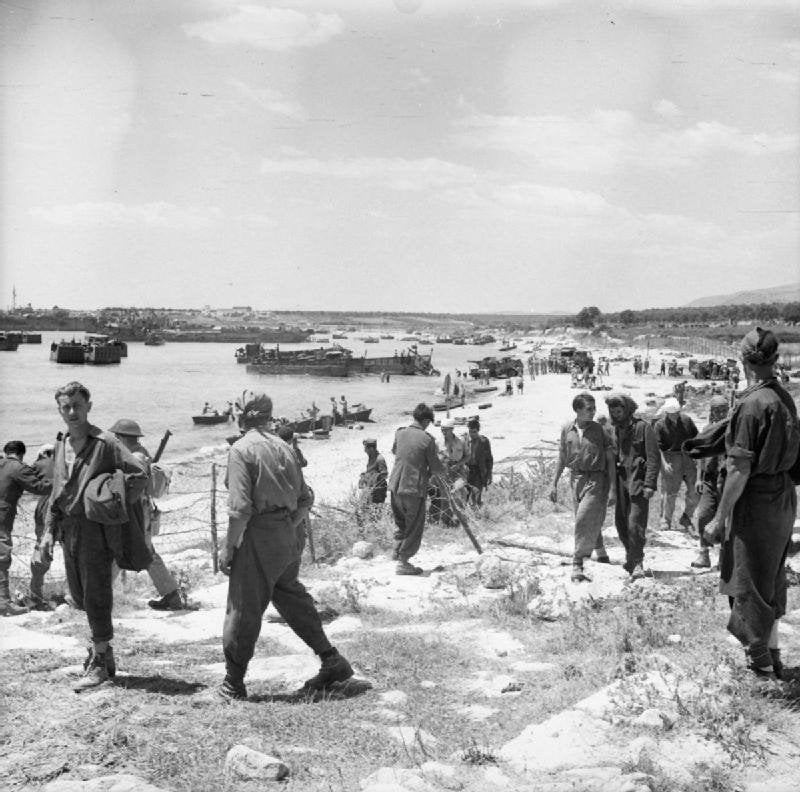Over the course of the Second World War the Combined Services Detailed Interrogation Centre (UK) (CSDIC (UK)) – at sites including Trent Park, the Tower of London, Latimer House and Wilton Park – covertly monitored, recorded, transcribed and translated the private conversations of over 10,000 German and 500 Italian soldiers, sailors and aviators.
Through the rigorous historical research of Falko Bell, Sönke Neitzel, Harald Welzer and Helen Fry, there is now a much greater understanding of the outlook of the German cohort – especially the dozens of senior German officers who were incarcerated at Trent Park.
Such works are of undeniable historical significance but should not obscure the conversations of CSDIC (UK)’s Italian cohort. Recent research by myself and Amedeo Osti Guerazzi demonstrate that the Centre’s transcripts offer a unique insight into the mindset of hundreds of Italian servicemen during the most catastrophic conflict in their nation’s history.
In discussions of fascist foreign policy and war-planning, criticisms of Mussolini’s regime by captured senior Italian officers were fierce – but clouded by self-justification and denial of their own role in Italy’s downfall.
‘In Sicily every single man would gave gladly let himself be killed in the defence of his country if it hadn’t been for fascism. They would have defended it inch-by-inch, even with their fingernails, even the women, if it hadn’t been for fascism.’ – Lieutenant-Colonel Pedala, July 1943.
‘In Rome they never understood. They wasted their time chattering and making fine speeches and drawing maps of the ‘Empire’ […] They have no sense of reality in Italy.’ – Field-Marshal Giovanni Messe, June 1943.
Many of their lower-ranked comrades similarly held Italy’s political leaders in contempt – but also many of their military commanders. Collectively, they might have lacked the intense genocidal racial hatred of the Nazis, but they were certainly anti-Semitic and racist – especially towards Slavs in the Balkans. Few had major reservations about subjecting the occupied populations of, for example, Yugoslavia, Greece and France to endemic corruption, casual violence and sexual exploitation. As soldiers often do, many spoke on the progress of the war itself. And so, we can trace the linked – and sometimes overlapping – trajectories of fading belief in victory and mounting defeatism among the Italian CSDIC (UK) cohort.
‘In Venice I knew a girl whom I liked very much. In fact, I love her as much as I now hate the Duce.’ – Midshipman Gridelli, April 1943.
‘In the past five or six years [Mussolini] has become […] the political leader of the world. […] the Duce is a man on a really higher plane.’ – An unnamed naval Lieutentant (Tenente di Vascello), November 1941.
References & Further Reading:
Alex Henry, War Through Italian Eyes: Fighting for Mussolini, 1940 – 1943 (Routledge: Abingdon, 2021).
Alex Henry, Everybody to be Armed’: Italian Naval Personnel and the Axis Occupation of Bordeaux, 1940 – 1943, The British Journal of Military History, 6⁄3 (2020), 23 – 41.
Amedeo Osti Guerrazzi, Noi non sappiamo odiare: L’esercito italiano tra fascism e democrazia (Milan: UTET, 2010).
Helen Fry, The Walls Have Ears: The Greatest Intelligence Operation of World War II (New Haven: Yale University Press, 2019).
Sönke Neitzel, and Harald Welzer, Soldaten: On Fighting, Killing and Dying (London: Simon & Schuster, 2013).
News, Articles & Events
Italians at CSDIC (UK)

